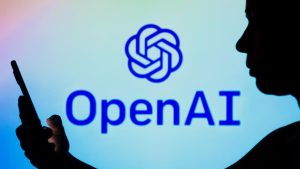Con: Should ChatGPT Be Allowed in Schools?
February 28, 2023
In late November last year, OpenAI released its revolutionary new artificial intelligence (AI) software, ChatGPT. According to Reuters, ChatGPT has since become one of the fastest-growing online sites ever, reaching 100 million users this January — faster than leading online platforms like TikTok, Instagram and Facebook. Given its sudden popularity, it is unsurprising that many educational institutions have begun to notice students’ use of ChatGPT to complete assignments from writing essays to coding. Although many teachers can detect the use of AI on assignments, the use of ChatGPT in schools is detrimental to students’ comprehension and quality of education.
ChatGPT and similar AIs are typically used by stressed, overwhelmed or underprepared adolescents as an efficient way of completing assignments. Rather than using software to finish schoolwork –– a vital facet to a student’s educational development –– concerns regarding the material should be communicated directly to teachers. As students become more familiar with AI, many may begin to rely more heavily on ChatGPT for solutions, thus discouraging student-teacher communication otherwise critical to assignment completion and comprehension. If students were to regularly use ChatGPT with the current curriculum, they would not benefit from a system carefully designed to prepare them for future success. As a result, the use of ChatGPT not only challenges students’ development but also undermines the value of schools’ established curriculums.
Another flaw of ChatGPT is its tendency to convey meaning inaccurately when asked to write complex essays. While understanding information generated by ChatGPT may be possible, doing so does not develop critical thinking, problem-solving or memorization skills. By doing homework and challenging exercises, students gain critical experience and build upon skills taught in class. Students who are overly reliant on software without understanding key concepts may struggle in a career that requires the skills developed in the classroom. Using ChatGPT on a regular basis undermines a student’s academic progression, as their skills will deteriorate over time without application. Evidently, ChatGPT is a means of evading important work and a form of academic dishonesty.
While AI should not be used in schools to complete entire assignments or avoid work, it can still be a productive tool when used alongside an institution’s curriculum. ChatGPT and other programs can assist in the development of outlines and lesson plans that ultimately enhance student learning. AI also allows teachers to perform tasks like brainstorming ideas for classroom activities more quickly. Students can and should also learn how to use AI, as it will likely be an integral part of their futures; it should simply be used sparingly. In conclusion, while AI can be a useful learning tool, the use of ChatGPT in schools should be banned due to the software’s detrimental effects on students’ education.










































